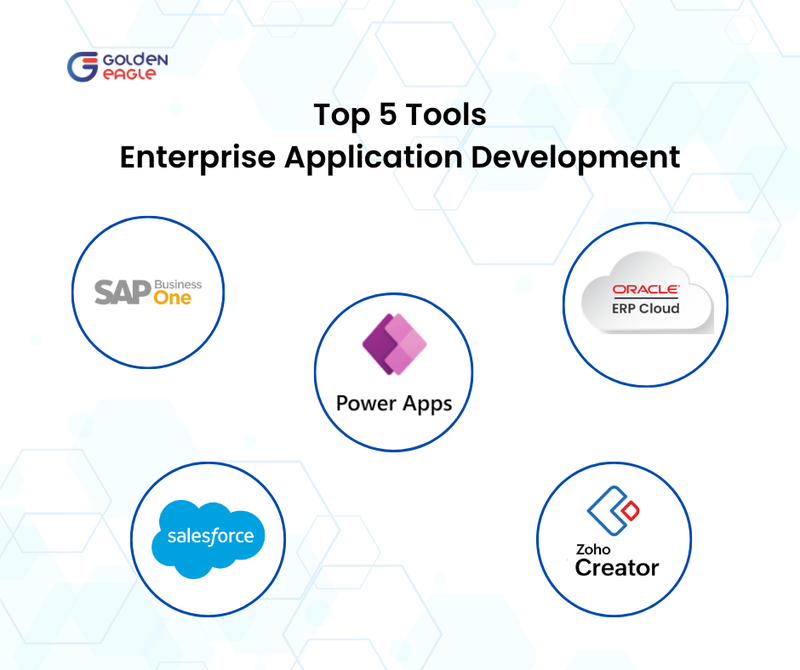
What Is Enterprise Application Development?
Enterprise Application Development refers to the process of designing, building, and maintaining software applications that are tailored to meet the specific needs of large organisations. These applications are essential for supporting various business processes, enhancing productivity, and improving operational efficiency. Typically, enterprise applications include tools for resource management, customer relationship management (CRM), and other operational software that facilitate complex business functions.
Why Is Enterprise Software Important?
Enterprise software plays a crucial role in the modern business landscape. It enables organizations to streamline processes, manage vast amounts of data, and foster collaboration among different departments. Here are some key reasons why enterprise software is vital:
- Improved Efficiency: By automating routine tasks and optimizing workflows, enterprise software can significantly enhance productivity.
- Data Management: These applications help organizations collect, store, and analyze large datasets, enabling informed decision-making.
- Scalability: As businesses grow, their software needs can change. Enterprise applications can scale to accommodate increased demands.
- Enhanced Collaboration: Integrated systems allow teams to work together more effectively, sharing information in real time.
- Compliance and Security: Enterprise applications often come with robust security features and help organizations comply with industry regulations.
5 Tools for Enterprise Application Development
Here are five essential tools that can streamline the process of enterprise application development.
1. SAP Business One
SAP Business One is an integrated enterprise resource planning (ERP) solution designed specifically for small to medium-sized enterprises. It covers various business functions, including finance, sales, customer relationship management (CRM), and operations. Its user-friendly interface and comprehensive features make it a preferred choice for businesses seeking a holistic approach to enterprise resource management.
2.Microsoft Power Apps
Microsoft Power Apps is a low-code application development platform that allows organizations to build custom applications quickly and easily. It integrates seamlessly with other Microsoft products, such as Azure and Office 365, making it an ideal choice for businesses already using the Microsoft ecosystem. Power Apps empowers teams to create applications that meet their unique needs without extensive programming knowledge 2
3.Oracle ERP Cloud
Oracle ERP Cloud is a comprehensive suite of cloud-based enterprise applications that provide organizations with integrated solutions for finance, procurement, project management, and more. It leverages advanced technologies, including artificial intelligence (AI) and machine learning, to deliver real-time insights and drive better decision-making. Its flexibility allows businesses to tailor the software to their specific requirements.
4.Salesforce
Salesforce is a leading CRM platform that helps organizations manage their customer relationships and streamline sales processes. It offers a wide range of applications for sales, marketing, customer service, and analytics. With its extensive customization options and powerful automation features, Salesforce is an excellent choice for businesses looking to enhance their customer relationship management capabilities.
5.Zoho Creator
Zoho Creator is a low-code application development platform that enables businesses to create custom applications without extensive coding knowledge. It allows users to design, develop, and deploy applications quickly, making it an excellent option for organizations with unique business needs. With its intuitive drag-and-drop interface and integration capabilities, Zoho Creator simplifies the application development process.

Types of Enterprise Software by Business Area
Enterprise software can be categorized based on the specific business areas it supports:
- Enterprise Resource Planning (ERP): Tools like SAP and Oracle that integrate various business functions.
- Customer Relationship Management (CRM): Software like Salesforce that helps manage customer interactions and relationships.
- Supply Chain Management (SCM): Applications that facilitate the management of supply chain activities.
- Human Resource Management (HRM): Tools that help manage employee records, payroll, and recruitment processes.
- Project Management: Software that assists in planning, executing, and monitoring projects.
What Are the Best Enterprise Software Applications?
The best enterprise software applications vary depending on the organization’s specific needs. However, leading solutions like SAP, Microsoft Dynamics, and Salesforce consistently rank highly due to their robust features, scalability, and support.
Key takeaways and guidance
Enterprise application development is a vital aspect of modern business operations, enabling organizations to optimize their processes and drive growth. By leveraging the right tools, businesses can enhance efficiency, improve collaboration, and make data-driven decisions. When selecting enterprise software, consider factors such as scalability, integration capabilities, and user-friendliness to ensure that the chosen solution aligns with your organisation’s goals.
In conclusion, embracing effective enterprise application development tools can significantly impact your organization's success. Whether you opt for ERP systems, CRM software, or custom application development, investing in the right technology will lead to improved operations and a competitive advantage in your industry.
FAQ (Frequently Asked Question)
- What is enterprise application development?
Enterprise application development refers to the process of creating software applications designed specifically for the needs of large organizations. These applications enhance operational efficiency and support various business functions. - Why is enterprise software important for businesses?
Enterprise software is essential for streamlining processes, managing large datasets, improving collaboration, ensuring compliance, and enhancing overall organisational productivity. - What are some examples of enterprise software?
Examples of enterprise software include ERP systems (like SAP and Oracle), CRM software (like Salesforce), and supply chain management applications. - How do I choose the right enterprise application development tool?
When selecting an enterprise application development tool, consider factors such as scalability, integration capabilities, user-friendliness, and how well it aligns with your organisation’s specific needs. - What is the difference between SaaS and on-premises enterprise software?
SaaS (Software as a Service) is a cloud-based solution accessed via the Internet, while on-premises software is installed locally on a company’s servers. SaaS typically offers greater flexibility and lower upfront costs, while on-premises solutions may provide more control over data.